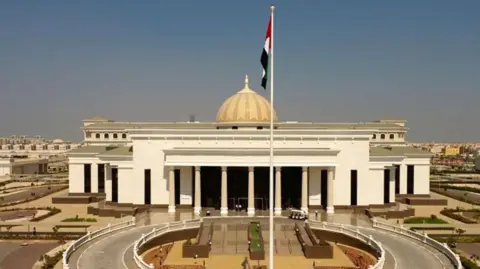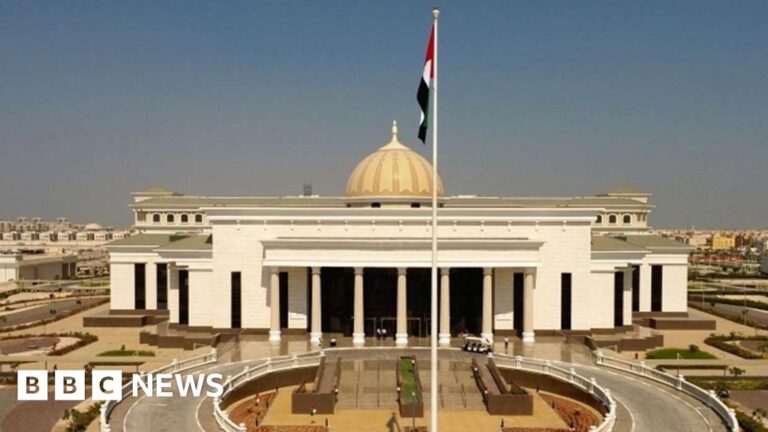By Thomas Mackintosh, BBC News, London
 Ministry of Justice of the United Arab Emirates
Ministry of Justice of the United Arab EmiratesA court in the United Arab Emirates has sentenced more than 40 political activists to life in prison after finding them guilty of terrorism offences.
State media said the Federal Court of Appeals in Abu Dhabi convicted the defendants of creating a terrorist organization.
United Nations experts and human rights groups have harshly criticized the mass trial.
Human Rights Watch (HRW) said more than 80 people – known as the “UAE 84” – have been tried.
In January, the UAE attorney general referred the defendants to the Federal Court of Appeal in Abu Dhabi on charges of “forming a clandestine organization with the aim of committing acts of terror and violence” in the country.
According to the official WAM news agency, the Federal Court of Appeals in Abu Dhabi “on Wednesday sentenced 43 defendants to life imprisonment for the crime of creating, establishing and managing a terrorist organization.”
In addition to the 43 life sentences handed down, 10 other defendants were jailed for periods of 10 to 15 years, WAM reported.
He added that one accused was acquitted and 24 cases were ruled inadmissible.
Most of the defendants have been in prison for more than a decade after being incarcerated as part of the “UAE 94” trial in 2013, according to HRW and Amnesty International.
Many had already served their sentences.
But Emirati authorities say the latest charges are “materially distinct” from those brought in 2013, which did not include accusations of funding a “terrorist organisation”, AFP reported.
According to Amnesty International, the indictment, the charges against him, the defence lawyers and the names of the accused have been “kept secret by the government”.
He said the details are only known through “leaks.”
Responding to the convictions, Amnesty International’s Devin Kenney urged the UAE to “urgently revoke this unlawful verdict” and called for the release of those convicted.
“The trial was a shameless travesty of justice and violated many fundamental principles of law, including the principle that you cannot try the same person twice for the same crime, and the principle that you cannot punish people retroactively under laws that did not exist at the time of the alleged offence.”
Despite being one of the wealthiest countries in the Middle East and fostering high-tech sectors and innovations, the UAE remains restrictive when it comes to political activity.
The seven-state federation, which includes Abu Dhabi and Dubai, has no official opposition and bans political parties.
In 2013, nearly 70 Islamists were sentenced to prison terms for an alleged plot to overthrow the government.



